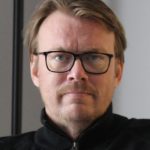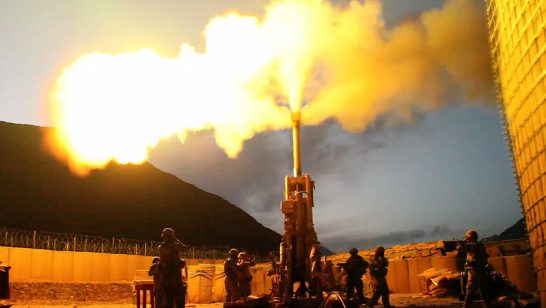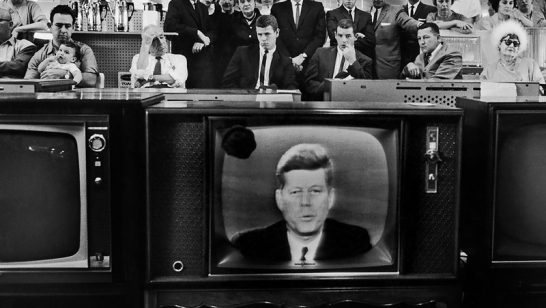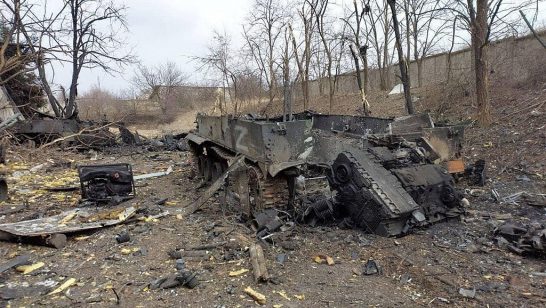
Last month, in a commentary called “What kind of Cold War do you want?”, the ELN’s Director, Sir Adam Thomson, wrote that “although it may now be hard to escape a cold war, especially between Russia and the West, countries can still make real choices that affect the course of the confrontation.” Here members of the ELN Network respond to the piece, reflecting on what choices can be made that will determine what a 21st-century-style cold war will be like.
“A new cold war has already started in the economic field”

Agathe Demarais
Author of Backfire, a book on the global ripple effects of US sanctions, and Global forecasting director at the Economist Intelligence Unit (EIU)
There is little doubt that a new cold war has started in the economic field, pitting Western countries against Russia and China. As during the previous Cold War, non-aligned countries—mostly in Africa, Asia, and Latin America—will be the battlefield of this conflict. Looking ahead, this will have two long-term consequences. First, the new economic cold war is reshuffling global supply chains as Western countries turn away from Russian commodities such as oil, gas, gold, fertilisers, and metals. This shift will probably be permanent, fuelled by sanctions and the reputational issues that Western firms face if they conduct trade with Russia. Emerging markets stand to benefit: facing dwindling exports to Europe, Russia will seek to forge new trade partnerships with commodity-hungry developing economies.
Second, the new cold war will further fuel the development of non-Western financial mechanisms, such as currency swap agreements (allowing emerging states to trade in local currencies instead of using the US dollar), alternatives to Swift (such as the China-backed CIPS framework), or digital currencies (400 million Chinese citizens already use a digital renminbi). China and Russia lead the way in this field in the hope that the development of non-Western financial channels will eventually make sanctions ineffective. This is a dangerous trend for Western democracies: if sanctions gradually become powerless, what tools will Western diplomats have to pressure rogue countries? Again, the developing world will be the battlefield of this economic war as the US and the EU seek to convince non-aligned states not to use Russia- or China-backed financial tools. However, Washington and Brussels may well be fighting a losing battle.
“The future is about the choices countries make, but today’s structural reality restricts these choices enormously.”

Yauheni Preiherman
Director of the Minsk Dialogue Council on International Relations and member of the YGLN
Sir Adam’s piece launches a discussion that needs to be had, and the sooner the better. While I fully subscribe to Sir Adam’s argument, it is important to stress one point that carries significant implications for this discussion.
That “the world faces a protracted period of acute, militarised, strategic confrontation” is a profoundly structural problem. It results from tectonic shifts in the international system, which have been undermining the pillars of the post-Cold War order for over a decade. Given where we are now, the all-pervading security dilemma has become a central driver of this accelerating transformation. These are obvious observations, but analysts and practitioners often seem not to keep in mind their specific implications, which might prevent us from having a cold war we want:
- The future is indeed about the choices that countries make, but today’s structural reality restricts these choices enormously and sometimes streamlines them beyond control. If we dismiss this, we will see ill will even where it doesn’t exist, which will distort our own choices.
- The tougher the geopolitical confrontation, the fewer the number of states whose choices along Sir Adam’s four axes matter and who can even make such choices. For most small and medium-sized states, security policy is increasingly about mere survival as their margin of error is too minuscule to consider grander questions, even though their leaders may think otherwise.
- Stuck with a security dilemma, it does not help to focus too much on individual decision-makers, be it Putin, Xi or Biden. The structural problem requires structurally-informed choices. Otherwise, we will again prove Robert Jervis right: “the central theme of international relations is not evil, but tragedy”.
“I spent six years building a “Europe without divides” on the Russian-Finnish border. If a “cold war” is unavoidable, do not isolate its people”

Tarja Cronberg
Former Member of the European Parliament, Distinguished Associate Fellow at SIPRI and Member of the Executive Board of the European Leadership Network
I spent six years of my life building a “Europe without divides” on the Russian- Finnish border. Administrations on both sides cooperated to create a “Euroregion”. We drafted common regional plans from 1995-2001, organised people-to-people exchanges on all levels, and learned each other’s languages. Border crossings were opened, and the opening hours were prolonged. EU Interreg and TACIS- programmes, the Finnish state and later also the Russian state, funded the cooperation, which was used as a European example of how the scars of war could be healed. Today all this is history. No meetings take place, all dialogue is at a standstill, and the border is closed. The Finnish state plans to build a wall.
There may be good reasons why you want to isolate the enemy, but peace is not one of them. To isolate a nation from the international community escalates hostilities and brings us closer to war. It is not possible to isolate only the elites and decision-makers. The hostile environment penetrates all spheres of life. Today Russia is under sanctions. Visas are not granted. Trains and buses do not cross the border. Air spaces are closed. To cross the Finnish-Russian border, you first have to fly to Dubai from Helsinki, and from there to Moscow and St Petersburg. The EU has forbidden all university exchanges. Russian students are no longer allowed to study in European universities.
During the cold war, both Finnair and Aeroflot flew from Helsinki to Moscow. Finnish students studied in Russian Universities and vice versa. The Finnish-Soviet friendship association organised tourist travel to the Soviet Union and showed Russian films in Helsinki. OK, this was part of Finlandization, today a swear word indicating submission. Nevertheless, I would rather grow up in peace than under Russian bombs in Ukraine- or, even worse, having to move to another country to start a new life.
It is up to the international community to build peace. This is not done by isolating a nation and its people. Isolated countries initiate nuclear programs, as in Iran and North Korea, in order to defend themselves. Authoritarian leaders use isolation to enhance their power. It is easier to control a people in isolation than in open exchange with the world. Building peace requires diplomacy and dialogue, isolation not only escalates a crisis but builds animosity that will stretch into the next generation.
“Diplomacy can and should be an instrument of communication and crisis management, but it must be based on principles of responsibility towards each other and the value of human life.”

Pavel Kanevskiy
Professor of Political Science and International Relations, Lomonosov Moscow State University
The original cold war started at a time when nations had to build the world anew. People saw the abyss from the inside and for the following decades, despite the ideological, political, and economic contradictions they had created, norms and rules allowed them to control the anarchy. These norms and rules reflected not only a rational approach to international relations but were the result of a living memory of horror and a sense of responsibility.
Globalisation and mutually beneficial interdependence haven’t been able to create immunity against mistrust and new divisions. We find ourselves in a situation when diverging interests, narratives, and threat perceptions eradicate basic principles of co-existence. The unthinkable becomes possible again, every new stage of escalation moves red lines further with the new abyss lurking somewhere ahead.
There is no magic formula that would show the way out of the current crisis. Quantitative dimensions (depth, speed, danger of confrontation, number of countries involved) do matter but so do behavioural and moral foundations of the global order. Diplomacy can and should be an instrument of communication and crisis management. At the same time, diplomacy must be based on principles of responsibility towards each other and the value of human life. Without these elements, it would be hard to return to a stable rule-based order. These elements were stronger once, and they helped to reshape the world in a better way. We need to strengthen them again.
“If all cooperative security tracks are abandoned, Europe will quickly find itself in a very dark place”
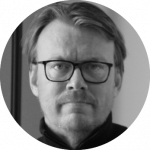
Andreas Persbo
ELN Senior Associate Fellow and Director of the Open Nuclear Network
Europe should be a continent without economic, societal, or political barriers, where individual rights and liberties are respected. Russia deserves to be a part of Europe, and that vision should be our landing place. However, as Sir Adam alludes to in his piece, the runway is out of sight.
The tides of war have changed, and a Ukrainian victory is now a realistic prospect. But even if Kyiv retakes its internationally recognised borders, Russia will remain on the other side, injured but still dangerous. We will not see peace but an unstable status quo.
The line of contact is long: A 2,600-kilometer-long carbon fibre curtain from Kirkenes high above the Arctic Circle to Odesa on the subtropical shorelines of the Black Sea. This curtain extends closer to Moscow than its steel predecessor.
Events might unfold faster than during the first Cold War. The humiliated Russian leadership may intensify its disruptive actions in Europe and the United States. The rhetoric, already at mind-numbing levels, might get worse. Russia’s domestic environment will be more brutal, making it impossible for the non-systemic Russian opposition to act.
Can the Russian leadership change? The Economist speculates on this scenario. President Putin’s position appears strong, and there are no identified successors. The pre-war opinion polls from the Levada Centre indicated declining but solid support for a term beyond 2024, but this can change.
The next few months will cast light on whether President Putin has been mortally wounded. Russia will hold its next presidential elections in about 18 months. But a change of presidency may not be meaningful if it’s gifted to another person equally unpalatable to the West. In Russia, likeable politicians are in short supply, which points to a long post-war period, more likely than not lasting to the end of the decade, possibly beyond.
It is hard to envision any successful Western policies other than military deterrence and economic sanctions. Yet, it will be essential to keep up functional communications on the regional level (border security comes to mind). Moreover, if all cooperative security tracks are abandoned, Europe will quickly find itself in a very dark place, facing complex and rising strategic risks.
“It is dangerous to label the current situation a cold war; Russia alone is not equal to its opponents.”

Ilana Bet-El
Strategic adviser, writer and historian, former UN official and senior adviser on the Balkans, and ELN Senior Associate Fellow
Terminology matters. The title given to an event is often both a summary and a description of it – especially war. The first and second world wars are a case in point. The cold war is another: to the vast majority of people the title denotes a lengthy and dangerous nuclear confrontation over global hegemony that involved deep ideological enmity but no battlefield deaths. And the ideology matters: it was about freedom versus repression, but more deeply, it was rooted in two fundamentally opposed ideological systems. For all the distortions of communism into horrendous dictatorship, the Soviet Union was created as an ideological opposite of capitalism and democracy. As such, it was rejected from the start by not only the west but by all European states before they were conquered by the USSR.
There is no ideology at the base of the current Russian regime, other than a belief in itself, its power, and its right to decide the fate of its people, its neighbours and the world, based on its own distorted interpretation of history and security. Its nuclear threats are not formulated within a confrontational agreement but rather as part of its aggressive invasion of Ukraine. It is therefore extremely dangerous to label the current situation between Russia and the collective west a cold war, as there is no framework to manage it, nor is it part of a hegemonic confrontation as Russia alone is not equal to its opponents. Rather, it is a dangerous confrontation between a power-crazy lawless regime and a weakened but coherent collection of states led by the US and the EU, representing democracy and the rule of law. As such, it is probably a hot confrontation.
“In Canada, it’s not what kind of cold war we want but what kind we’ll end up with”

Zachary Paikin
Researcher at the Centre for European Policy Studies in Brussels, a non-resident fellow with the Toronto-based Institute for Peace & Diplomacy, and a member of the YGLN’s executive committee.
In national popular culture, the terms that most often come to mind when describing Canada’s post-war foreign policy are ‘honest broker’ and ‘helpful fixer’. Although stereotypical, these notions nonetheless point to something important – namely, that while Canada did not shy away from alliance-building, it would also not lose sight of the rest of the world. UN-centred multilateralism and relations with the ‘Third World’ were key pillars of Ottawa’s global engagement during the Cold War.
In more recent decades, however, the balance has shifted. The advent of continental free trade and the 9/11 attacks forced Ottawa to spend more time tending to relations with Washington. Military operations in Afghanistan, Libya and (more recently) NATO’s Enhanced Forward Presence have resulted in the transatlantic alliance occupying a greater share of the country’s attention on matters of foreign policy.
Shortly after coming to power in 2015, Prime Minister Justin Trudeau set about resetting relations with Beijing and Moscow. His government sought to make Canada the first G7 country to sign a free trade agreement with China, while also pledging to pursue active cooperation with Russia in the Arctic despite differences over Ukraine. But the replacement of Stéphane Dion with Chrystia Freeland as foreign minister in early 2017 put an end to any hope of a reset with Moscow – especially given Freeland’s presence on the Russian sanctions list.
In a recent speech given to the Brookings Institution, Freeland – who is now deputy prime minister – demonstrated few qualms in characterising the struggle between democracies and autocracies as zero-sum – even existential. In countries such as Canada, where foreign policy captures comparatively little national attention and a comprehensive foreign policy review has not occurred in nearly two decades, the voices of a select few can have a disproportionate impact. The result is a climate in which the range of acceptable policy options is becoming increasingly narrow. The question, therefore, may not be what kind of cold war we want, but what kind of cold war we’ll end up with.
The opinions articulated above represent the views of the authors and do not necessarily reflect the position of the European Leadership Network or all of its members. The ELN’s aim is to encourage debates that will help develop Europe’s capacity to address the pressing foreign, defence, and security policy challenges of our time.




